Jakarta, MINA – The Indonesian Ulema Council (MUI) on Thursday issued its end of 2020 notes to highlight important events taking place in the Islamic world and on the international stage.
Sudarnoto Abdul Hakim, Chairman of the MUI for Foreign Relations and International Cooperation, said 2020 was a year of great disaster for the world, especially Muslims internationally.
This disaster, said Sudarnoto, generally occurred as a result of the Covid-19 pandemic which had caused a social, humanitarian and economic crisis.
“To a certain extent, this pandemic has also affected the political situation and made it difficult for Muslims in several countries to stand,” Sudarnoto said in a statement as quoted from Anadolu Agency on Saturday.
Also Read: Two Years of Israeli Genocide Fail to Halt Gaza Students’ Academic Achievements
Apart from that, explained Sudarnoto, Israel’s imperialistic attitude and discriminatory policies against Muslim minorities in India are a real picture of the pain of Muslims and the human tragedy in the pandemic era.
“In fact, in the pandemic era, the spirit of Islamophobia has also appeared in many countries, which among others have been encouraged by nationalist-chauvinistic, secular extreme-radical and atheist groups,” explained the lecturer at UIN Syarif Hidayatullah, Jakarta.
MUI, said Sudarnoto, encourages and gives full support to the government to continue to uphold its free and active politics and appear as a peacemaker in resolving or finding solutions to various conflicts, such as Israel-Palestine, Azarbeijan-Armenia, and Afghanistan.
Particularly, with regard to the commitment to defend Palestine, MUI fully supports the Indonesian government not to open opportunities for normalization of relations with Israel, despite the lure of huge financial assistance.
Also Read: Israeli Forces Impose Curfew in Hebron, Close Ibrahimi Mosque for Settler Holiday
“Opening diplomatic relations and cooperation with Israel will seriously hurt the feelings of the Palestinian people and the Indonesian people,” said the alumnus of the Islamic Unity Islamic Boarding School, Bangil.
MUI also highlighted the oppression and cruelty against Muslims that occurred in many countries by local authorities.
Sudarnoto gave an example that Muslims in India have been discriminated against socially, economically, legally and politically, especially since the Indian citizenship law places Muslims as second class citizens.
“The spirit of Islamophobia is spread by saying that Muslims are spreaders of Covid-19,” explained this master graduate from McGill University, Canada.
Also Read: UNRWA Appeals for Shelter Materials as Winter Rains Flood Displacement Camps in Gaza
Apart from India, said Sudarnoto, discrimination against Muslims is also experienced by Muslims in Kashmir, Myanmar and Uyghurs.
In fact, he continued, several cases of discrimination, bullying, and blasphemy against Muslims in several regions in Australia, Europe and America also occurred.
“The phobic attitude towards Islam and Muslims was also shown in France, among others, through the statement of French President Emmanuel Macron some time ago,” said Sudarnoto.
In the name of freedom of expression, said Sudarnoto, the French government tolerated and protected the defamation of the Prophet Muhammad and Islam.
Also Read: Israeli Occupation Army Kidnaps 15 Palestinians in West Bank Wide-Scale Operation
“MUI condemns all forms of oppression against Muslims and Islamophobic attitudes that are carried out by anyone,” said Sudarnoto.
However, he continued, MUI also conveyed a number of recommendations that world institutions such as the OIC, the United Nations, and human rights organizations intensively take important and dignified steps to stop the Islamophobic movement and defend the rights and sovereignty of Muslims, especially in non-Muslim countries.
MUI also views that there is still global injustice that politically and economically affects the world order.
According to Sudarnoto, several countries with majority and minority Muslim populations have become victims of this injustice
Also Read: Heavy Rains Flood Displacement Camps in Gaza, Deepening Humanitarian Crisis
He said the domination of neo-capitalism and neo-liberalism gave birth to economic inequality and injustice in many countries.
“World economic institutions such as the IMF are deemed not successful in realizing prosperity and justice,” he said.
Furthermore, he explained, the Veto right, especially by America, was also a source of problems so that the fate of the Palestinian people to this day is getting harder.
“In addition to the continuing Israeli invasion and annexation of Palestine, efforts to divide the Middle East country continue to be carried out with American involvement, including the movement to normalize relations with Israel,” he explained.
Also Read: Israeli Forces Shell Eastern Gaza City and Jabalia, Commit Dozens of Ceasefire Violations
MUI, said Sudarnoto, condemned Israel’s invasion and imperialistic actions against Palestine.
“Israel’s actions undermine several UN Security Council resolutions, humanity and world peace,” he said.
According to Sudarnoto, resistance to Israel must be carried out, among others, first, through diplomatic struggles by urging Israel to be removed from its membership in the United Nations.
Second, the encouragement of various civil society forces at home and abroad, human rights activists and other segments of society to criticize and stop Israel
Also Read: Israeli Occupation Forces Kill Two Palestinians in Gaza, Violating Ceasefire
Third, the push for the OIC to consolidate the unity of Muslim countries.
Related to that, said Sudarnoto, MUI encourages the internal democratization process by reviewing or at least limiting the use of Veto Rights for matters relating to the safety of the human soul and the existence of a nation.
“In this way, it will weaken efforts to strengthen global peace and justice,” said Sudarnoto.
MUI also highlighted the global situation concerning Muslims and emphasized the increasingly important role of the OIC.
Also Read: Indonesia Prepares 20,000 TNI Personnel for Gaza Humanitarian Mission
MUI, said Sudarnoto, encourages unity and effective leadership and must stop the factions of several OIC member countries.
This is because conflict will actually weaken and corner the position of the Muslim ummah and countries.
“Because of that, MUI considers it necessary for the OIC and other world Islamic organizations to carry out a serious reconsolidation so that the leadership of the Islamic world can be upheld effectively so that the unity of the Islamic world is stronger,” he said.
Sudarnoto MUI together with the government and other forces of Muslim civil society saw the need to collaborate in initiating a series of meetings or dialogue forums with scholars from other countries to bring peace.
Also Read: Israel Blocks Critical Aid to Gaza, Rejects 23 Requests Since Ceasefire: UN
Such forums, said Sudarnoto, would be useful not only to stop internal conflicts between factions, but also to build and strengthen Islamic brotherhood and various forms of productive cooperation for the benefit of Muslims.
“Strengthening Ukhuwah Islamiyah will greatly contribute to efforts to create effective leadership in the Islamic world. And Indonesia, as the largest Muslim country, has a strategic role in that, “said Sudarnoto. (T/RE1)
Mi’raj News Agency (MINA)
Also Read: Storm Threatens Gaza With Flooding, Endangering Fragile Tents Sheltering Hundreds of Thousands






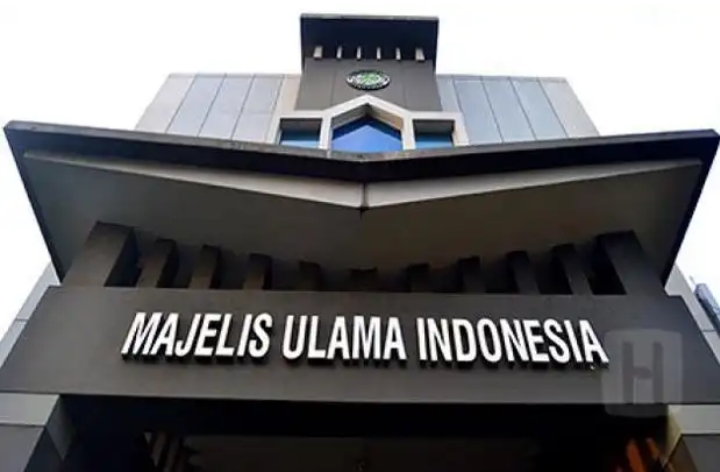

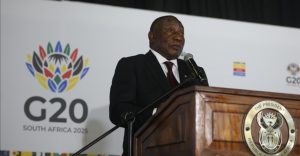
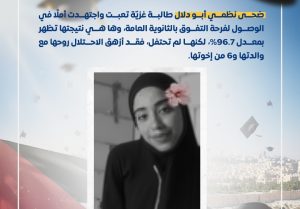


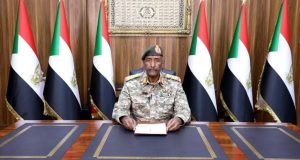
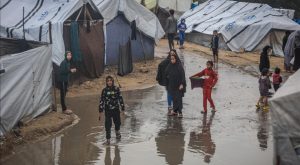

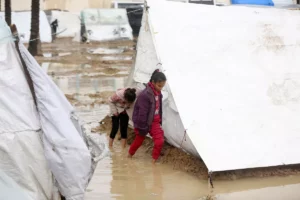

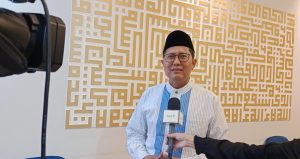

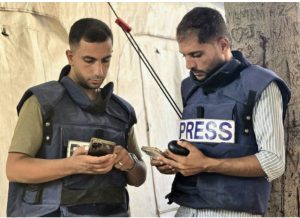

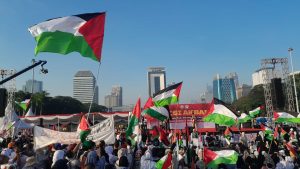











 Mina Indonesia
Mina Indonesia Mina Arabic
Mina Arabic